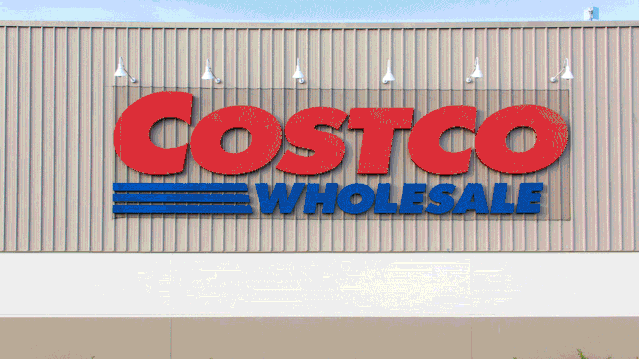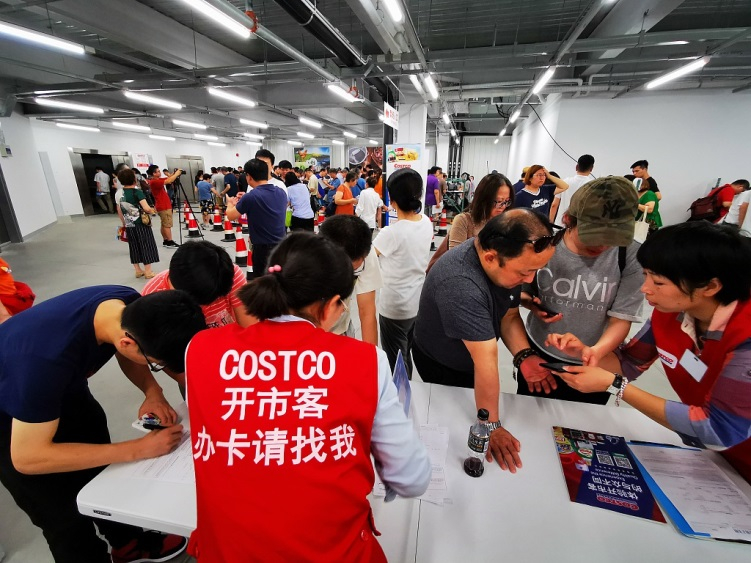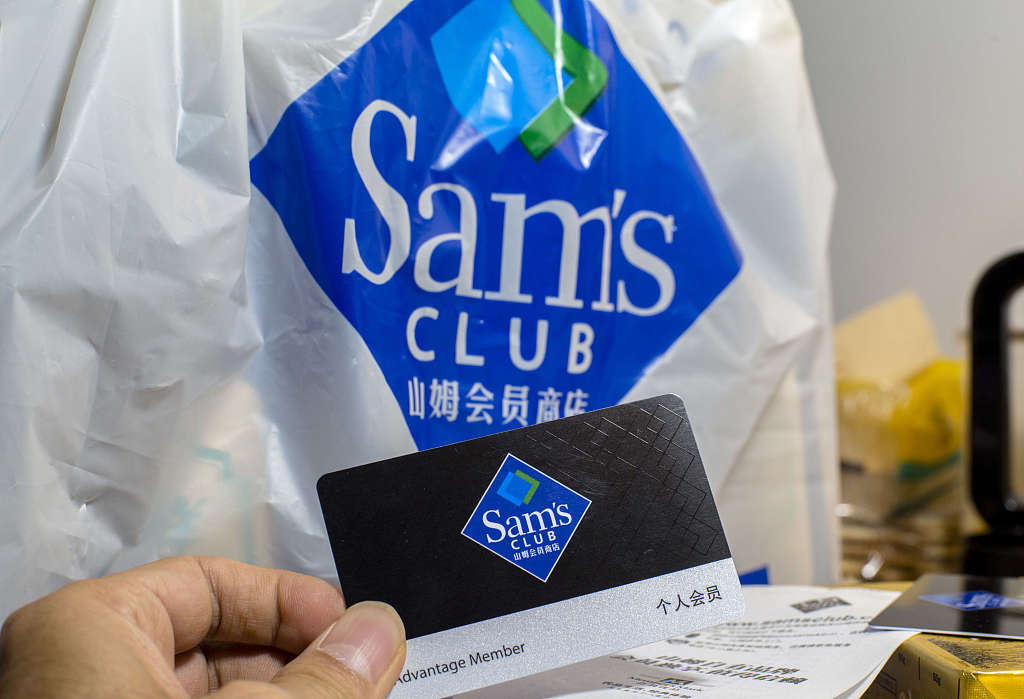

Costco closed early on the very first day that it opened in China due to an overwhelming flood of customers on Tuesday afternoon.
Located in Minhang District of Shanghai, the U.S. membership-only retailer launched its first brick-and-mortar store on the Chinese mainland Tuesday, with the largest parking lot for a Costco store in the world.
Tens of thousands of members registered before opening day, with netizens actively sharing their shopping suggestions and lists of things worth buying.
“Shanghai residents are so enthusiastic! You have to wait in queue for four hours to get a membership!” a netizen commented.

By August 26, people were seen crowing around the Costco store to register for membership and getting prepared for opening day. / CGTN Photo
A long queue formed outside the store’s entrance on Tuesday, with some parts of the store too full to enter immediately. Costco’s own-brand baked goods, such as muffins, were among the most popular items.
Costco has been careful in making their foray into the huge but brutal Chinese market.
"It is appropriate for Costco to open physical stores only in the place with a mature market as well as improved purchasing-power," Costco once commented.
Zhang Sihan (Richard Zhang), Costco's senior vice president for Asia, said the team has been waiting a long time, assuring a deep understanding of the local market. It also has been patient while Chinese consumers get to know the brand as well as the membership concept before entering the country.

Notice from Costco saying that "the parking lot is full and it takes three hours to wait." / CGTN Photo
Costco is optimistic about the Chinese market, where affluent consumers are increasingly demanding high-quality products that foreign brands are well-positioned to provide.
As early as June, more than 600 American companies and industries, including Costco, Warmart and Target already wrote to the White House, urging the ceasefire of the ongoing trade war between China and the U.S.
“We know that the additional tariffs will have a significant, negative and long-term impact on American business, farmers, and the U.S. companies.”
Featuring bulk consumer products and good after-sales service, Costco won over many Chinese buyers long before its debut on the Chinese mainland by 2014 through Alibaba’s cross-border e-commerce platform Tmall Global.
As a U.S. wholesale giant and one of the biggest retailers in the world, Costco runs businesses in over 11 countries and regions with over 770 warehouses and over 96 million registered members.
Other retailers bullish about Chinese market
First entering China in 1996, Sam's Club now has over 2 million members in the country. Last year, the retailer's revenue grew 8 percent year on year.
The Walmart-owned warehouse club plans to have 40 stores open or under construction by 2020, up from its current 25, according to Andrew Miles, president of Sam's Club China.
Aiming to better meet the needs of Chinese customers, especially for family shopping, Sam's Club focuses on improving its services.
"Chinese consumers have become increasingly willing to pay for better services in the past one to two years," said Chen Zhiyu, senior vice president of Sam's Club China, China Daily reported.

Sam's Club membership card. /VCG Photo
ALDI, a grocery chain based in Germany, opened its first two grocery stores in Shanghai on June 7 this year.
Different from its stores in other countries that are always positioned as discounters, ALDI's first two Chinese branches are targeting medium-to-high end customers, specializing in the sale of privately labeled products, fresh produce and ready-to-eat and ready-to-cook meals.
While expanding businesses in the Chinese market, foreign retailers also face fierce competition from domestic retailers. Supermarkets such as Hema Fresh and 7Fresh blend online and offline shopping as well as provide catering services, becoming very popular among Chinese consumers.
Therefore, for foreign retailers, it is no easy task to integrate into the Chinese market and cater for Chinese consumers that have strong purchasing power as well as an appetite for quality products.
Read more: American retailer Costco battling amid US-China trade war

Copyright © 2018 CGTN. Beijing ICP prepared NO.16065310-3
Copyright © 2018 CGTN. Beijing ICP prepared NO.16065310-3